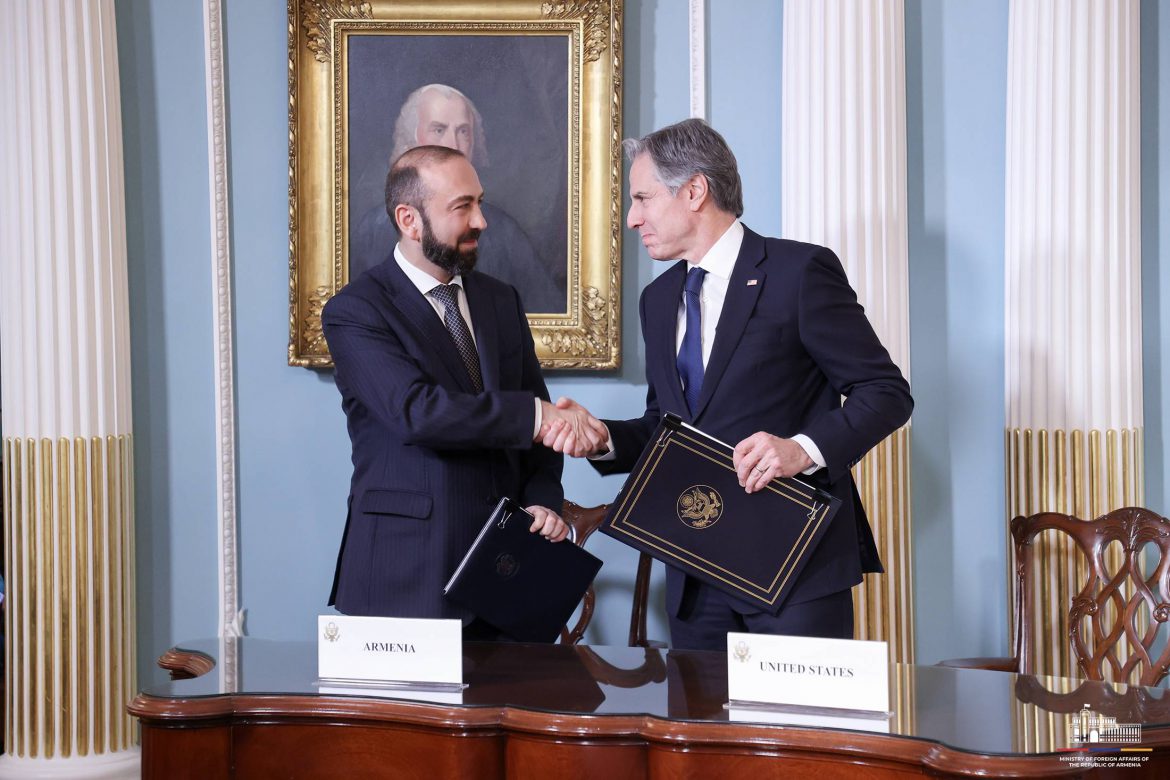By Andranik Aboyan
The declaration of a “strategic partnership” between Armenia and the United States is not an act of mutual empowerment but a stark manifestation of Armenia’s growing subordination to Western agendas. This so-called partnership, cloaked in platitudes of “democracy” and “sovereignty,” exposes the diametrically opposed interests of a small, besieged nation and a global hegemon.
U.S. Secretary of State Antony Blinken’s announcement of the U.S.-Armenia Strategic Partnership Commission heralds the deepening penetration of Armenia by American capital and military influence. Blinken’s lofty language about “shared principles” and “bilateral cooperation” belies the true nature of this relationship: the strategic alignment of Armenia as a pliable outpost in the service of Washington’s geopolitical chessboard.
Economic, security, and “people-to-people exchanges” are not neutral acts of friendship but tools of soft-power dominance. The imposition of Western frameworks and economic integration will further erode Armenia’s capacity for independent development, chaining it to the neoliberal dictates of the U.S.-led order.
Foreign Minister Ararat Mirzoyan’s words about “remarkable growth” in ties and U.S. support for “independence” ring hollow. Armenia’s sovereignty is reduced to a bargaining chip as it abandons its historical ties to the Eurasian power bloc in favor of the self-serving promises of a patron whose interest lies not in Armenian prosperity, but in exploiting its geopolitical position as a bulwark against Russian and Iranian influence.
Blinken’s mention of “border security capacity building” underlines this dynamic. The replacement of Russian border guards at select locations with U.S.-trained personnel is not a gesture of goodwill but a calculated move to assert Western dominance at Armenia’s frontiers, particularly along its critical border with Iran. Far from ensuring peace or security, this maneuver places Armenia at the front lines of broader regional conflicts.
The West’s approach to Armenia is devoid of genuine care for the Armenian people. It would see every single Armenian sacrifice themselves on the altar of “Western values” without so much as blinking, as long as it serves their broader imperialist goals. The rhetoric of “support for sovereignty” is empty when the policies it engenders leave the nation vulnerable to destabilization and exploitation. For the architects of this partnership, Armenia is not a partner but a pawn, expendable in their relentless pursuit of global dominance.
Notably absent from Blinken’s statements was any mention of substantial military support. The United States, ever wary of committing its resources beyond symbolic gestures, leaves Armenia exposed militarily while encouraging provocative policies that destabilize the region. This cynical approach underscores Armenia’s transformation into a pawn in an imperialist game, sacrificed to the pursuit of a hegemonic agenda that benefits Washington, not Yerevan.
Russia’s reaction and earlier warnings about increased “security risks and economic problems” are grounded in the realities of Armenia’s precarious position. By aligning itself more closely with the West, Armenia risks undermining the fragile balance that has preserved its statehood in a hostile region.
Under the guise of cooperation, Armenia’s ruling elite has chosen a path that distances the nation from its historical role as a bridge between civilizations. Instead, it risks becoming an isolated vassal state, ensnared in the exploitative embrace of West. Only through the recognition of these realities and the people depriving the treacherous few in power of their mandate can Armenia hope to break free from the clutches of defeat, dependency, and exploitation.




